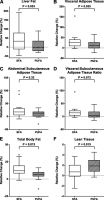BigYellowLemon
Member
- Joined
- Jul 6, 2016
- Messages
- 550
Those ETC points are quite valid, but I think the point on PUFA being insulin sensitizing is incorrect. PUFA is a direct insulin receptor antagonist, so it will prevent it from doing its job and make you insulin resistant.
Polyunsaturated fatty acid-mediated suppression of insulin-dependent gene expression of lipogenic enzymes in rat liver. - PubMed - NCBI
"...The effects of dietary polyunsaturated fat on insulin-dependent gene expression of lipogenic enzymes and a possible mechanism for PUFA-mediated suppression of the gene expression have been investigated in rat livers. When diabetic rats were injected with insulin, the insulin dose-dependent induction of lipogenic enzyme mRNAs were markedly reduced with increasing dietary corn oil. On the other hand, the PUFA-mediated suppression of the mRNA concentrations was partially restored by treatment with pioglitazone, a candidate for increasing insulin receptor phosphorylation. Moreover, insulin binding to receptors of liver, receptor autophosphorylation, and kinase activity toward exogenous substrate were lower in the corn oil diet group than in the hydrogenated fat group. The PUFA-mediated suppression of insulin binding was somewhat restored by pioglitazone, and the suppression of insulin receptor phosphorylation was significantly restored. It is suggested that the PUFA-mediated suppression of insulin-dependent gene expression of lipogenic enzymes can be ascribed to a decrease in insulin receptor binding primarily and also to receptor phosphorylation. Thus, PUFA appears to suppress the lipogenic enzyme gene expression stimulated by insulin."
Also, PUFA is the primary inducer of NF-kB and that protein is perhaps THE main player in insulin resistance and diabetes II. There is a reason aspirin, glycine, and progesterone can cure diabetes II and insulin resistance - i.e. they all lower levels of NF-kB, as well as TNFa and such, and none of these are upregulated by saturated fat. So, diabetes is primarily an inflammatory condition, which is supported by the fact that cortisol production is upregulated in diabetes. Saturated fats, especially MCT like coconut oil and butter are insulin sensitizing when eaten without PUFA. The reason superoxide ions are created in the ETC is usually excessive NO production, to which PUFA also contributed. Saturated fat and carbs on their own do not create dangerous levels of superoxides.
So, the TLDR of my rant is this - ANY fat will make you temporarily insulin resistant due to the Randle cycle. However, ONLY the PUFA will give you diabetes and chronic insulin resistance due to its interference with the insulin "receptor" expression and binding profile, induction of inflammation (NF-kB, TNFa, prostaglandins, leukotrienes, etc) and damaging of the beta cells of the pancreas. Saturated fat has none of these effects.
Just my 2c.
Hmm, very interesting!
I'm not sure how I feel about this study. They used diabetic rats, fed them PUFA, and then injected them with insulin. It seems artificial to me.
When I said that PUFA was insulin sensitizing, I wasn't saying that like it was a good thing.
Here's a post by tyw, if you haven't seen it: Fructose Alters Brain Genes Negatively. How To Counter This From Peat Perspective?
Here's the Hyperlipid article on fatty acids and superoxide bursts, which can result in insulin resistance or sensitivity: Hyperlipid: Protons: FADH2:NADH ratios and MUFA
Hmm, it seems that PUFA displays insulin sensitizing effects at low-levels but shut's down insulin signalling at high-levels. At either level, it seems to mess with proper insulin signalling. So even though it is insulin sensitizing at low-levels, it's not the proper/normal/physiological insulin signalling that the body likes.

